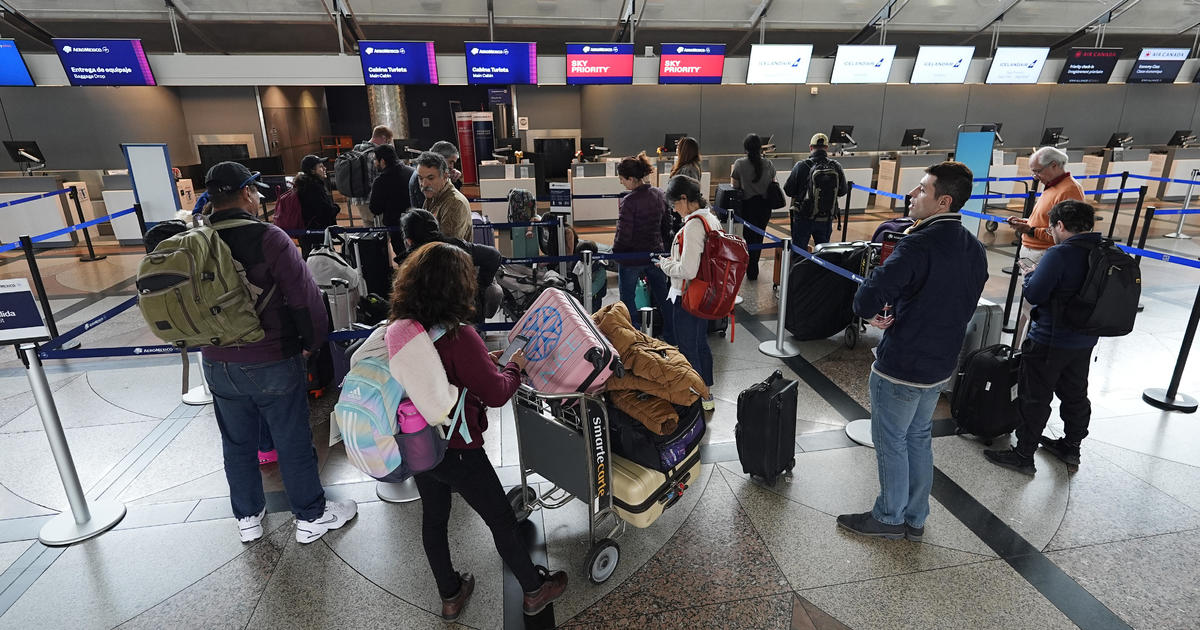Keep It Down: Inmates Ask California Prison Guards To Walk Quieter At Night
SACRAMENTO, Calif. (AP) - California corrections officials said Thursday that they are handing out earplugs and telling guards to walk softly around some of the state's most dangerous prisoners after the inmates complained about noise.
The inmates say new welfare checks at Pelican Bay State Prison's notorious security housing unit are keeping them up nights because noise caused by guards rouses them every half-hour around the clock.
"We know that people have not been able to sleep at all, and that's pretty dangerous," said Laura Magnani, an advocate with the American Friends Service Committee.
Correctional officers are supposed to pause at each inmate's cell and peer in long enough to know that the prisoner is breathing, to guard against suicides and other problems like heart attacks, said Michael Bien, an attorney who represents mentally ill inmates and has fought to lower California's high inmate suicide rate.
"This has been successfully done all over the state without disruption, and it saves lives," Bien said.
Yet Bien and Magnani said inmates are complaining that officers are deliberately making noise with their keys and boots and repeatedly slamming the door to the isolation unit, while shining flashlights into each inmate's eyes.
Pelican Bay is using an electronic system that requires officers to punch a time clock beside each cell, although officers have been instructed to turn the system to mute so as not to awaken inmates. The time clocks and the welfare checks may be drawing resistance from officers as they did initially in other state prisons since the program began elsewhere nearly a decade ago, Bien said. Wardens elsewhere were able to control guards' behavior, he said.
"Nobody wants to punch time clocks, and the anger has been taken out on prisoners," he said.
Bien said the problem is so bad that the inmates are considering hunger strikes, similar to ones held to protest the state's solitary-confinement policy before this month's court settlement. Some inmates have required medical treatment resulting from sleep deprivation while others are experiencing psychological stress, he said.
Nichol Gomez, a spokeswoman with the union representing most correctional officers, declined comment.
"It's kind of a tough pickle for corrections officers because they are kind of in between - whatever they do they're damned if they do and damned if they don't," said Michael Rushford, president of the Criminal Justice Legal Foundation that represents crime victims. "It seems like one of these Catch 22s - if they find a dead inmate then the first thing that happens is corrections gets sued."
Nearly 70 noise complaints have been filed by the 1,100 inmates segregated at Pelican Bay since the checks began early last month. The segregation unit, which houses gang leaders and those who commit serious crimes behind bars, is at the center of a landmark court settlement announced earlier this month that will effectively end indefinite solitary confinement in California state prisons.
Rushford suggested the department consider using video cameras, while Bien said officials could consider issuing soft-soled shoes to night patrols.
Officials are training correctional officers to complete the checks as quietly as possible while exploring ways to quiet the prison's clanging doors, said Terry Thornton, a spokeswoman with the Department of Corrections and Rehabilitation.
She and Bien said programs including inmates' showers and recreation time also have been improperly affected, though Thornton said the problems are decreasing.
Copyright 2015 The Associated Press.



